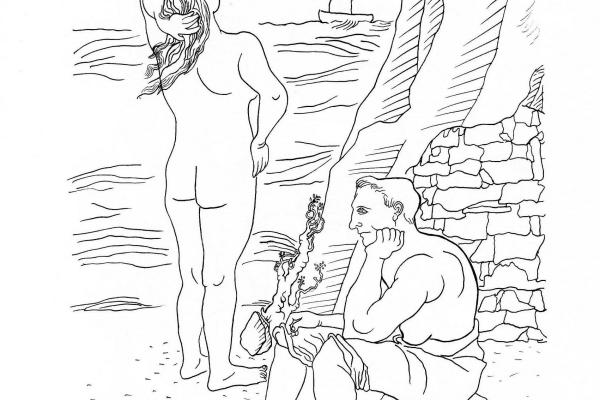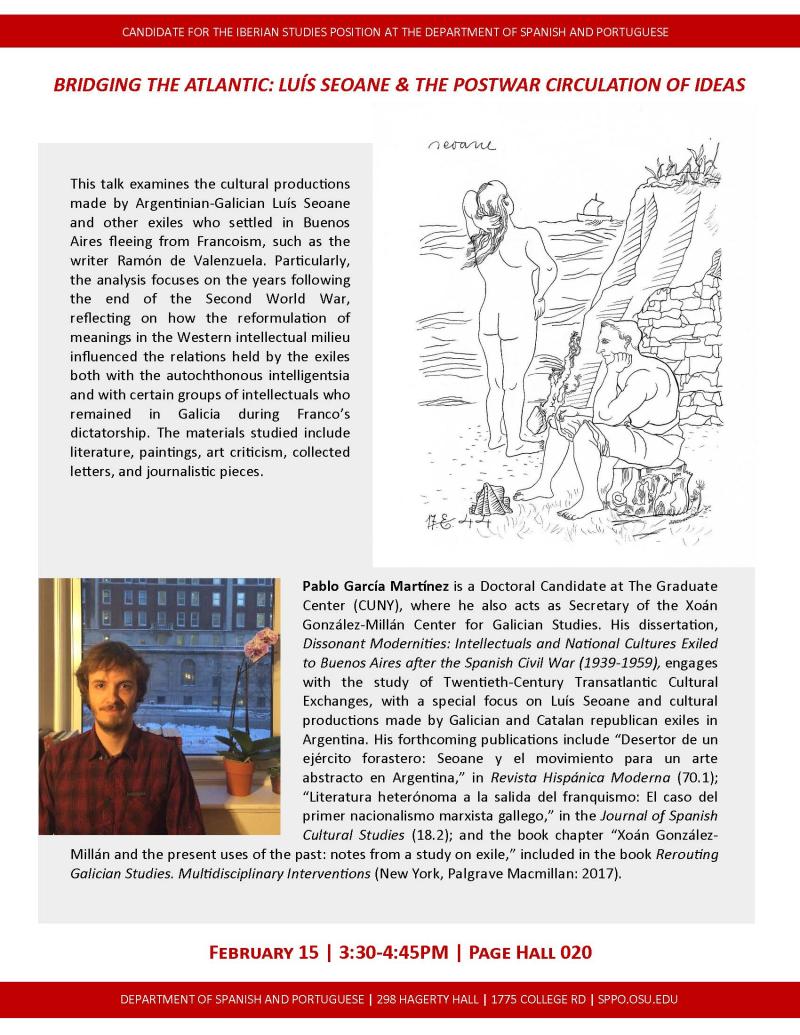
This talk examines the cultural productions made by Argentinian-Galician Luís Seoane and other exiles who settled in Buenos Aires fleeing from Francoism, such as the writer Ramón de Valenzuela. Particularly, the analysis focuses on the years following the end of the Second World War, reflecting on how the reformulation of meanings in the Western intellectual milieu influenced the relations held by the exiles both with the autochthonous intelligentsia and with certain groups of intellectuals who remained in Galicia during Franco’s dictatorship. The materials studied include literature, paintings, art criticism, collected letters, and journalistic pieces.
Pablo García Martínez is a Doctoral Candidate at The Graduate Center (CUNY), where he also acts as Secretary of the Xoán González-Millán Center for Galician Studies. His dissertation, Dissonant Modernities: Intellectuals and National Cultures Exiled to Buenos Aires after the Spanish Civil War (1939-1959), engages with the study of Twentieth-Century Transatlantic Cultural Exchanges, with a special focus on Luís Seoane and cultural productions made by Galician and Catalan republican exiles in Argentina. His forthcoming publications include “Desertor de un ejército forastero: Seoane y el movimiento para un arte abstracto en Argentina,” in Revista Hispánica Moderna (70.1); “Literatura heterónoma a la salida del franquismo: El caso del primer nacionalismo marxista gallego,” in the Journal of Spanish Cultural Studies (18.2); and the book chapter “Xoán González-Millán and the present uses of the past: notes from a study on exile,” included in the book Rerouting Galician Studies. Multidisciplinary Interventions (New York, Palgrave Macmillan: 2017).

